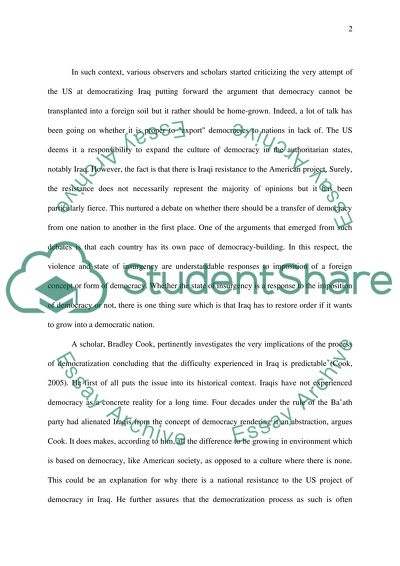Cite this document
(“Roadblocks to Democracy in Iraq Essay Example | Topics and Well Written Essays - 2000 words”, n.d.)
Retrieved from https://studentshare.org/miscellaneous/1514664-roadblocks-to-democracy-in-iraq
Retrieved from https://studentshare.org/miscellaneous/1514664-roadblocks-to-democracy-in-iraq
(Roadblocks to Democracy in Iraq Essay Example | Topics and Well Written Essays - 2000 Words)
https://studentshare.org/miscellaneous/1514664-roadblocks-to-democracy-in-iraq.
https://studentshare.org/miscellaneous/1514664-roadblocks-to-democracy-in-iraq.
“Roadblocks to Democracy in Iraq Essay Example | Topics and Well Written Essays - 2000 Words”, n.d. https://studentshare.org/miscellaneous/1514664-roadblocks-to-democracy-in-iraq.


